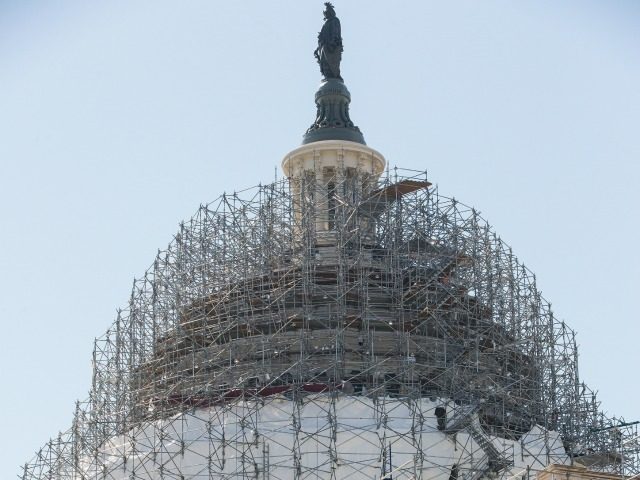Rep. John L. Ratcliffe (R.-Texas) is claiming a huge win against the Regulatory State.
He tells Breitbart News his bill, the Separation of Powers Restoration Act, H.R. 4768, knocks the pillars out from under the Regulatory State after 30 years of growth fueled by “Chevron Deference.”
“Republican and Democratic administrations alike have been taking taking advantage of Chevron Deference for the last three decades and it’s been the American people, who have been suffering, but it’s Congress, who can provide the fix to this,” said whose bill passed the House 240 to 171, with one Democrat voting with Republicans.
The legislation makes it clear in statute that the regulated and the regulators are back on equal footing before the law, he said.
Ratcliffe said his inspiration came from his collaboration with Sen. Mike Lee (R.-Utah) and the other conservatives working on the Article 1 Project, which seeks ways to reassert congressional prerogatives, intended by the Framers, but lost over time and practice to the Executive and Judiciary branches.
“It’s a cost of $2 billion a year, the administrative burden on the American economy, and it gets worse every day as the size of government grows and the influence of bureaucrats grow,” he said.
Chevron Deference is the legal thumb on the scale the judges give federal regulators, whenever their regulations are challenged in the courts and even more so in the administrative law courts, set up inside government agencies with “judges,” who are employees of the agency.
The principle comes from the Supreme Court’s 1984, Chevron v. Natural Resources Defense Council, in the EPA under President Ronald Reagan was challenged in its interpretation of the Clean Air Act by the NRDC. In its decision, the high court said whenever a law’s actual text is silent or confusing, the courts give the benefit of the doubt to the regulator’s own interpretation.
Ratcliffe said Net Neutrality is the perfect example of how Chevron Deference encourages rogue regulators run amok.
“There was a case decided a month ago, where the U.S. Court of Appeals cited the Chevron doctrine no less than 12 times,” he said. “The bureaucrats at the FCC determined that the intent of Congress in drafting the Communications Act of 1934 was for broadband internet service to be regulated like a telephone utility—It’s amazing.”
The congressman said he was damned sure the Internet was invented after 1934.
Another prominent example is the Supreme Court’s 2015 decision in King v. Burwell, where the Supreme Court ruled that although the Patient Protection and Affordable Care Act did not allow federal subsidies for federally-administered healthcare plan markets, it would allow the IRS to continue granting tax credits to subsidize the healthcare exchanges based on its own reading of the law.
In his King v. Burwell dissent Justice Antonin Scalia disparaged the concept that judges should go along with however regulators choose to fill in the gaps on a law’s language. “The Court’s decision reflects the philosophy that judges should endure whatever interpretive distortions it takes in order to correct a supposed flaw in the statutory machinery.”
Ratcliffe said, It just speaks to the lunacy of the situation, where we find ourselves in. Bureaucrats are literally rewriting congressional intent to fit the political agendas for political gains.”
The companion bill in the Senate is sponsored by Sen. Orrin Hatch (R.-Utah), the chairman of the Senate Finance Committee.

COMMENTS
Please let us know if you're having issues with commenting.